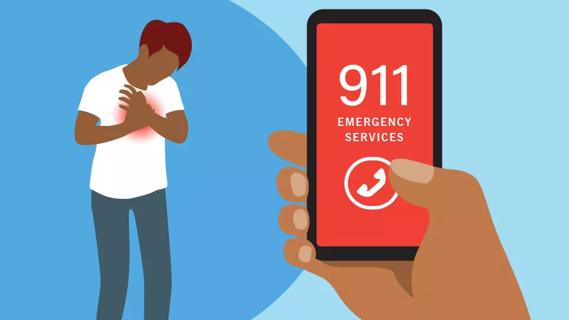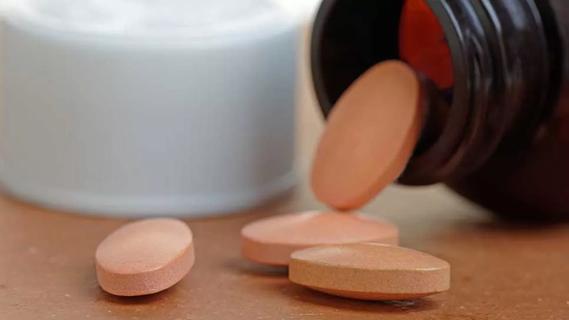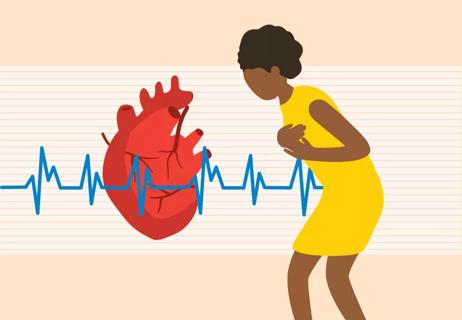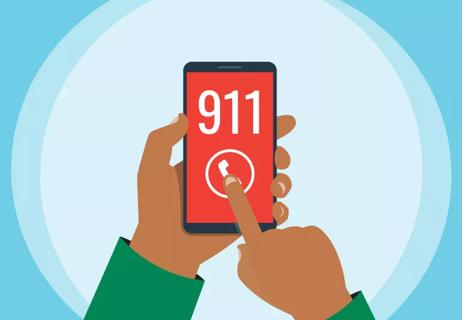Experts say the future's largely in your hands

Some people are just plain lucky: They suffer a heart attack and emerge none the worse for the experience. Afterwards, they may say they had “a mild heart attack.”
Advertisement
Cleveland Clinic is a non-profit academic medical center. Advertising on our site helps support our mission. We do not endorse non-Cleveland Clinic products or services. Policy
Most people understand essentially what this means, but cardiologist Joseph Campbell, MD, finds the term misleading.
“Despite a good outcome, a mild heart attack is still a big deal. All heart attacks are serious,” he says.
A “mild heart attack” is a common way of referring to what physicians call a non-ST elevation myocardial infarction, or NSTEMI. (This indicates how the heartbeat looks on an electrocardiogram).
In this type of heart attack, blood flow through one of the coronary arteries was partially blocked, limiting the supply of oxygenated blood to the heart muscle.
“If you were told you’ve had a mild heart attack, it probably means your heart didn’t suffer much damage and still pumps normally,” Dr. Campbell says.
You can’t predict the outcome of a heart attack by your symptoms or how severe they are. That’s why symptoms that suggest a possible heart attack should never be ignored.
“How well you fare after a heart attack depends on how quickly you act,” Dr. Campbell says. “The sooner you get emergency care, the better the chance you will suffer less permanent damage to your heart.”
If you go to the ER with heart-attack symptom, you’ll be treated right away. Your blood will be examined for any enzymes indicating there’s been damage to your heart’s muscle. And a noninvasive echocardiogram is performed to see how well your heart is pumping.
Advertisement
Still it may take several hours to determine whether you’ve had a heart attack — and what kind of treatment is needed. That means, if you’re not sure what your symptoms mean, the thought of spending several hours in the ER might discourage you from seeking care. Don’t let it! Dr. Campbell advises that it’s much wiser to err on the safe side.
“It’s better you spend several hours in the ER than learn the damage has been done, and your heart can’t be fixed,” he says.
Even if your heart comes through unscathed, a heart attack should be viewed as a wake-up call. “You are at increased risk for another heart attack or a stroke. It’s time to get serious,” Dr. Campbell says.
Your physician will make a plan for preventing another heart attack. But it’s you who must carry it out.
“It is extremely important to understand that how you live your life and manage your risk factors going forward will impact what happens to you next,” he says. “We urge you to recognize a mild heart attack as an important event and use it to make changes that positively impact your health.”
This article first appeared in Cleveland Clinic Heart Advisor.
Advertisement
Learn more about our editorial process.
Advertisement

There’s no way to stop it once a heart attack is happening, but the most important thing you can do is to call for help

To help determine what you’re experiencing, focus on how the pain feels, the location of the pain, when it started and how long it lasts

Stopping this critical medication on your own increases the risk of heart attack, stroke and more

Symptoms may be mild, but don’t be fooled — any heart attack is serious

Subtle heart attack warning signs include pressure, cold sweats and fatigue

Sedentary lifestyles are driving up heart attack numbers in the under-40 crowd

Lifestyle choices involving food, exercise, sleep and more can help reduce your risk

Get the answer from an interventional cardiologist

Type 2 diabetes isn’t inevitable with these dietary changes

Applying a hot or cold compress can help with pain